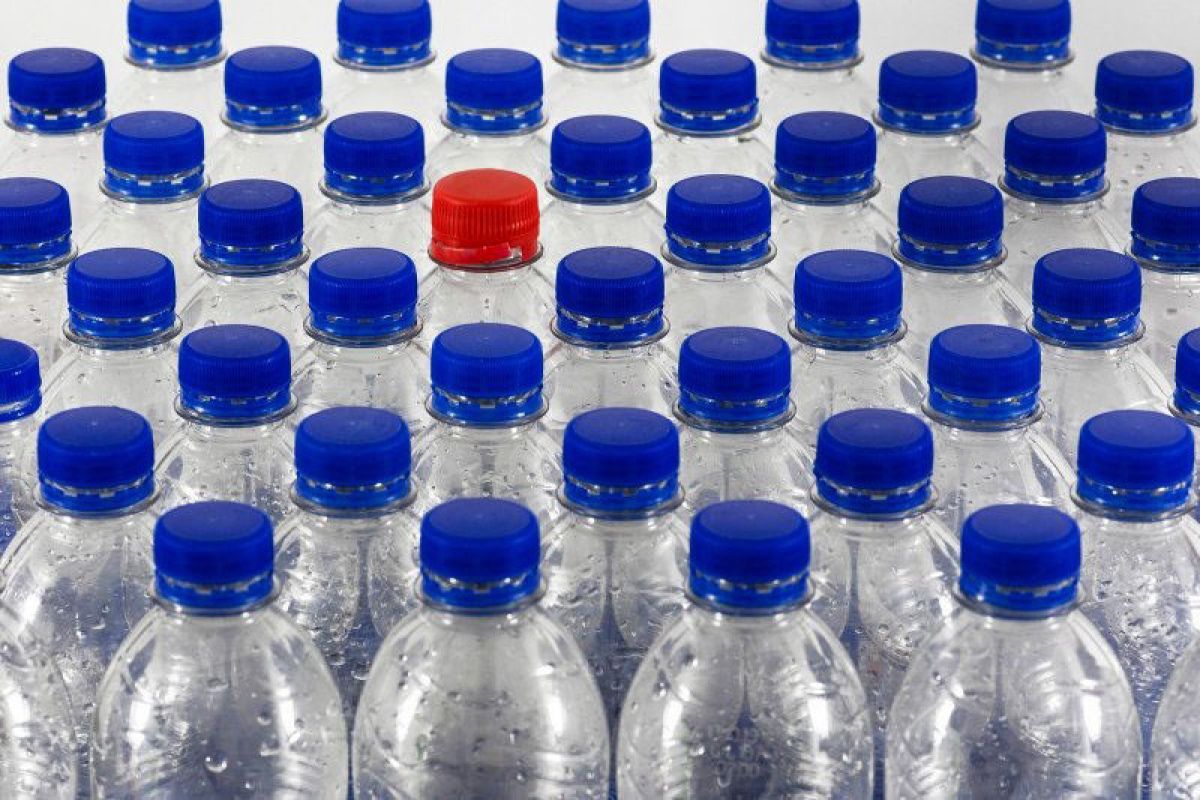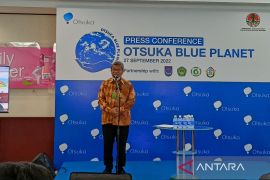However, the use of plastic packaging can pose a threat to humans if they remain ignorant about the presence of certain harmful chemical compounds in plastic.
Therefore, the Indonesian Medical Association (IDI) has urged the community to gain awareness about the types of plastics they use and what they are made of.
"So far, people have only focused on the types of food and drinks consumed and their effects on health, but have ignored the effect of food or beverage packaging and the content in the packaging on health," secretary general of IDI, Dr. Ulul Albab, SpOG, said in a written statement received here on August 12, 2022.
Data from the Ministry of Industry has shown that around 78 percent of industries in Indonesia are currently using plastic packaging for food and beverage products, while 16.5 percent are using plastic for packaging carbonated drinks.
However, the use of Bisphenol A (BPA) in polycarbonate plastic packaging, which can impact human health, has raised IDI’s concerns. BPA is a chemical compound that is used to make polycarbonate plastic and is often used in FCM (food contact materials), such as gallon water packaging, or in epoxy resin that is used as a protective coating in cans containing food or beverage products.
Therefore, IDI has expressed support for the regulation on BPA labeling on plastic packaging as it can help people become aware of the presence of BPA and choose products accordingly, Albab said.
Related news: IDI supports review of BPA labeling on plastic packaging
Related news: Poor distribution of reusable water gallons aggravates BPA migration
Dangers of BPA
Head of IDI's non-communicable disease management study division, Dr. Agustina Puspitasari, SpOk, SubSp. BioKO(K), said that globally, BPA is widely used in reusable water bottles, polycarbonate plastics, packaging plastics, food can coatings, and water pipes, among others.
However, what has become a concern is the migration of BPA particles into food or beverages that are in direct contact with the primary packaging, which can increase the health risks arising from exposure to BPA.
"This is our concern," she said.
Puspitasari revealed that several studies have shown that exposure to BPA affects human physiology controlled by the endocrine and prostate gland, and brain development in fetuses, infants, and children. The use of plastic containing BPA can also affect children's health and behavior.
Another study has indicated a possible relation between BPA and an increase in blood pressure, Type 2 diabetes, and cardiovascular diseases.
BPA began to be used in epoxy resins and in the manufacture of polycarbonate plastics in 1950. However, in 1970, the US National Toxicology Program found that BPA was toxic to reproductive organs.
After several research trials, in 2008, the United States Food and Drug Administration (USFDA) set a limit on the concentration of BPA, while Canada imposed a limited ban on the use of BPA and classified it as a toxic substance.
In 2011, the European Commission issued the SML (specific migration limit) and banned the use of BPA in baby products and children's bottles.
Moreover, a number of countries have applied specific BPA regulations on food packaging, for example, France, which has prohibited the use of BPA in all food contact packaging.
Then, California requires manufacturers to include a uniform warning label to alert customers regarding the presence of BPA in packaging. Meanwhile, Denmark, Austria, Sweden, and Malaysia have implemented a ban on using BPA in food contact packaging for vulnerable consumers aged 0–3 years.
Regulation on BPA labeling
To protect the community and provide correct information, the National Agency of Drug and Food Control (BPOM) has taken the initiative to regulate bottled water packaging labelling through the revision of BPOM Regulation Number 31 of 2018 regarding Processed Food Labels.
Head of the BPOM, Penny K. Lukito, emphasized that the presence of BPA in processed food products is not just a local or national issue, but a global concern that must be addressed wisely for the sake of protecting consumer health.
IDI has voiced its support for the BPOM’s decision to conduct a regulatory review of BPA labeling on plastic food and beverage packaging.
Albab said that all parties need to implement a new plastic economy vision in accordance with the recommendations of the United Nations Environment Programme (UNEP).
The recommendations include eliminating the unnecessary use of plastic, innovating to ensure plastic can be reused, as well as circulating used plastic items so that they remain maintained, economical, and environmentally friendly.
Regarding the labeling regulation, IDI has offered several recommendations to the government, industries, and the community regarding BPA and plastic packaging.
The first suggestion is for all industries to label their food or beverage products to show whether or not their packaging contains BPA.
Next, manufacturers and industry players have been advised to consult with the BPOM regarding the content and labeling regulations because they are related to public safety and health, including being wise in producing and choosing plastic packaging.
“Then, choose plastic packaging with a BPA-free label, including bottled drinking water," Albab added.
Meanwhile, the community must also avoid using, storing, or washing plastic bottles repeatedly at high temperatures, he said.
Choosing healthy food is, indeed, a challenge for people. And now, they are being asked to pay greater attention to the labeling on packages of foods and beverages that they consume. While this may have added to their to-do list, awareness about BPA is one health approach that will benefit them in the long run.
Related news: BPA labeling on drinking water gallons not impacting depots' sales
Related news: Minister encourages regulations to reduce plastic waste in Raja Ampat
Translator: Maria Rosari, Raka Adji
Editor: Sri Haryati
Copyright © ANTARA 2022












